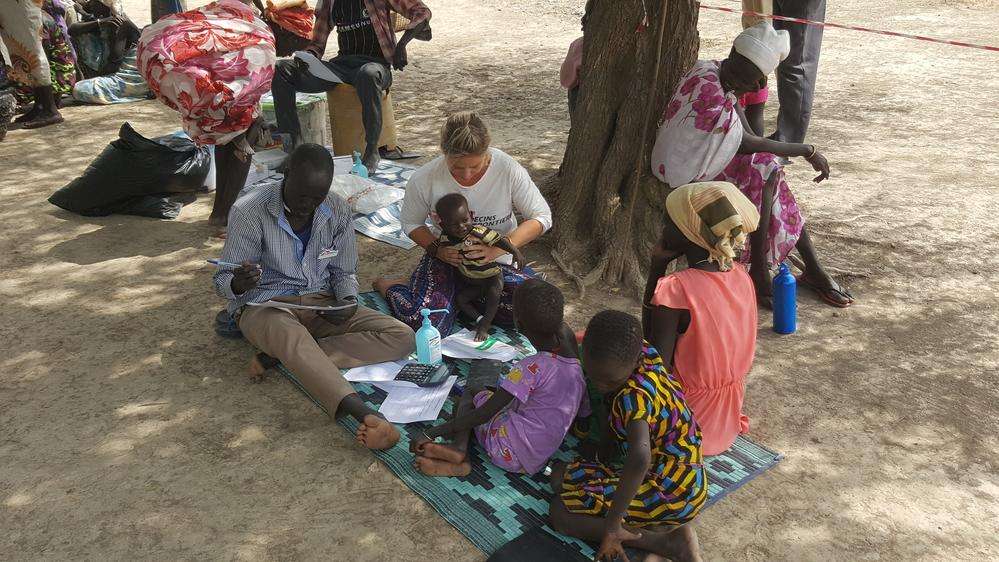People are constantly on the move in South Sudan’s Leer and Mayendit counties, where shifting front lines of conflict frequently force residents to flee their homes. Repeated attacks on the Doctors Without Borders/Médecins Sans Frontières (MSF) hospital in Leer have further complicated the situation, necessitating new approaches to health care provision. Here, MSF doctor Philippa Pett describes how her team has adapted to provide health care to people on the move through a flexible network of mobile clinics.
Picking Up the Pieces
"When I arrived in Leer in March 2016, the hospital had recently reopened after being looted five months earlier. It wasn’t long before the hospital had to be evacuated again for security reasons, and in July I had to fly back home [to the United Kingdom]. It was difficult to leave knowing the situation we had left behind.
Our South Sudanese staff wanted to continue giving health care, to ease the suffering of their communities and families, and I wanted to help them do that. As soon as MSF offered me the chance to return there, I said yes.
The situation in this area is very volatile. There is no place where you could set up a hospital that would be safe for patients to reach for an undefined period of time. We needed to make sure we wouldn’t be asking them to cross front lines to get treatment.
So we decided to take a different approach. Instead of a hospital, our community health workers have formed themselves into teams that run clinics six days a week in the areas where they live. They are all people from the local community who are trained in providing health care for common complaints like malaria, skin diseases, and diarrheal diseases. They are the constant for the community; they are the project.
Forced to Flee
When people are forced to leave their homes because of fighting nearby, the community health worker teams move with them, as they would normally, and provide them with health care. Some had to flee several times in November and December alone. This is their everyday life. Our staff say they never know if they are going to see the morning. And in the morning, they don’t know if they will see the night.
But this is exactly why the new approach works. As the local population moves, our staff go with them to places of safety. This means they can reach the displaced people, while at the same time they are safe themselves and remain with their families. They tell me they feel much safer now that they don’t have to cross frontlines to work in the hospital.
Our South Sudanese staff love the teaching we give them. Many had no formal education because of the conflict, so they really value this teaching. Their capacity to learn is huge—they are very driven and they really want to make a difference.
Providing Support
As international staff, our role is to provide support to the South Sudanese staff. We visit two or three clinics over the course of a ten-day trip, traveling on foot or by canoe through the swamps. When we reach the mobile clinics, we answer the team’s questions, resupply them with medicines, and provide supervision and training, but they have ownership of the clinic and the patients. My role is to make sure standards are kept high, that patients are safe and health workers are well-trained.
There are limits to what we can do medically in these conditions. You see people with very complex conditions and it is frustrating not to be able to test and treat them, but you need to focus on what you can do. You cannot underestimate the importance of basic health care.
The main challenge at the moment is food. All the crops were looted in July and many people missed the planting season because they were running from the conflict. The markets are mostly empty, with only tea and salt available. Where food is on sale, the prices are too high. Around the islands, at least they can fish, but in some areas, people are surviving by eating the seeds of waterlilies.
I think that people here accept things that wouldn’t be acceptable in any other situation—they are incredibly resilient. But the conflict still has a major impact on their life. You can see it among our patients and among our staff. But still they want to make things better for their communities. They take pride in the work they do, and we are proud of them for doing it."




